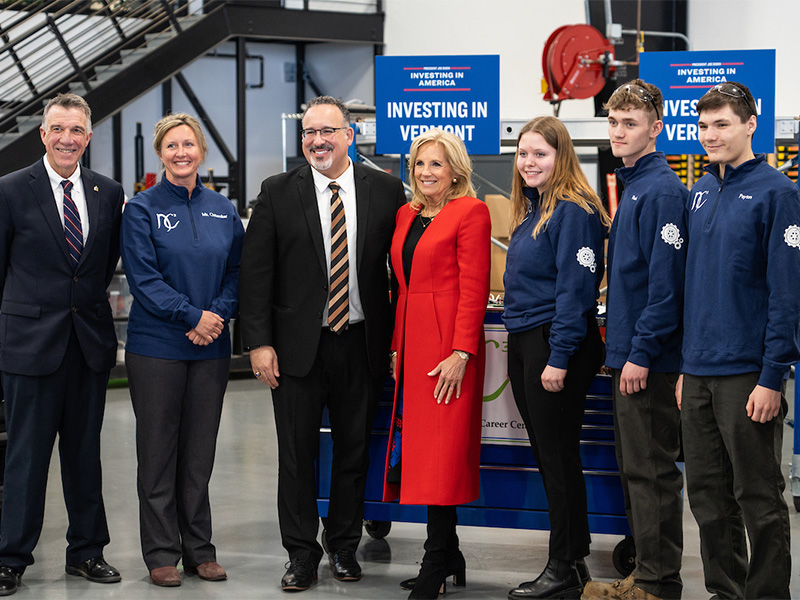Vermont has long had a strong reputation for its focus on sustainability, and both Vermont businesses and Vermonters are dedicated stewards of the environment.
Because of this, recently WalletHub ranked Vermont as the #1 Greenest State. Using metrics like green buildings per capita, percentage of consumption of renewable energy, and gasoline consumption, as well as many more, Vermont’s combined scores placed our state above every other in both environmental quality and eco-friendly behaviors. Vermont also tied for 3rd for best air quality.
One of the reasons Vermont leads the country on prioritizing the environment is because our businesses take it seriously too. Take Burlington-based Beta Technologies, pioneer of electric flight. Beta’s electric vertical takeoff and landing (eVTOL) aircraft are the cutting edge of aviation and green technology.
Global and national companies looking to reduce their carbon footprint are noticing. Beta recently struck a deal with shipping giant UPS to purchase eVTOL aircraft to deliver to small and mid-size markets. Reducing transit time, emissions, and cost, the super quiet eVTOL aircraft will make deliveries to UPS facilities by 2024; UPS plans to expand the fleet to 150.
Beta is also in the vanguard of passenger transportation. According to CNBC, Blade Urban Air Mobility, which provides flights in the New York City, Los Angeles, and other urban areas, recently signed a deal with the company to purchase up to 20 eVTOL passenger planes.
Closer to home, Green Mountain Power is breaking its own ground, grabbing a spot on the 2021 Utility Transformation Leaderboard. The utility received the accolade for its progress on converting to carbon-free and renewable energy sources and for its innovative energy storage programs.
Not to be outdone by the largest player in Vermont’s renewable energy sector, small business Packetized Energy is bringing its unique system of managing energy demand to states on both coasts. Recently the company was tapped to help California and South Carolina improve their energy grids, enabling them to handle peak demand, reduce reliance on fossil fuel power plants, and save customers money.
As climate change continues its impact on our communities and environment, the innovations in sustainability made possible by Vermont businesses is more essential than ever.




